
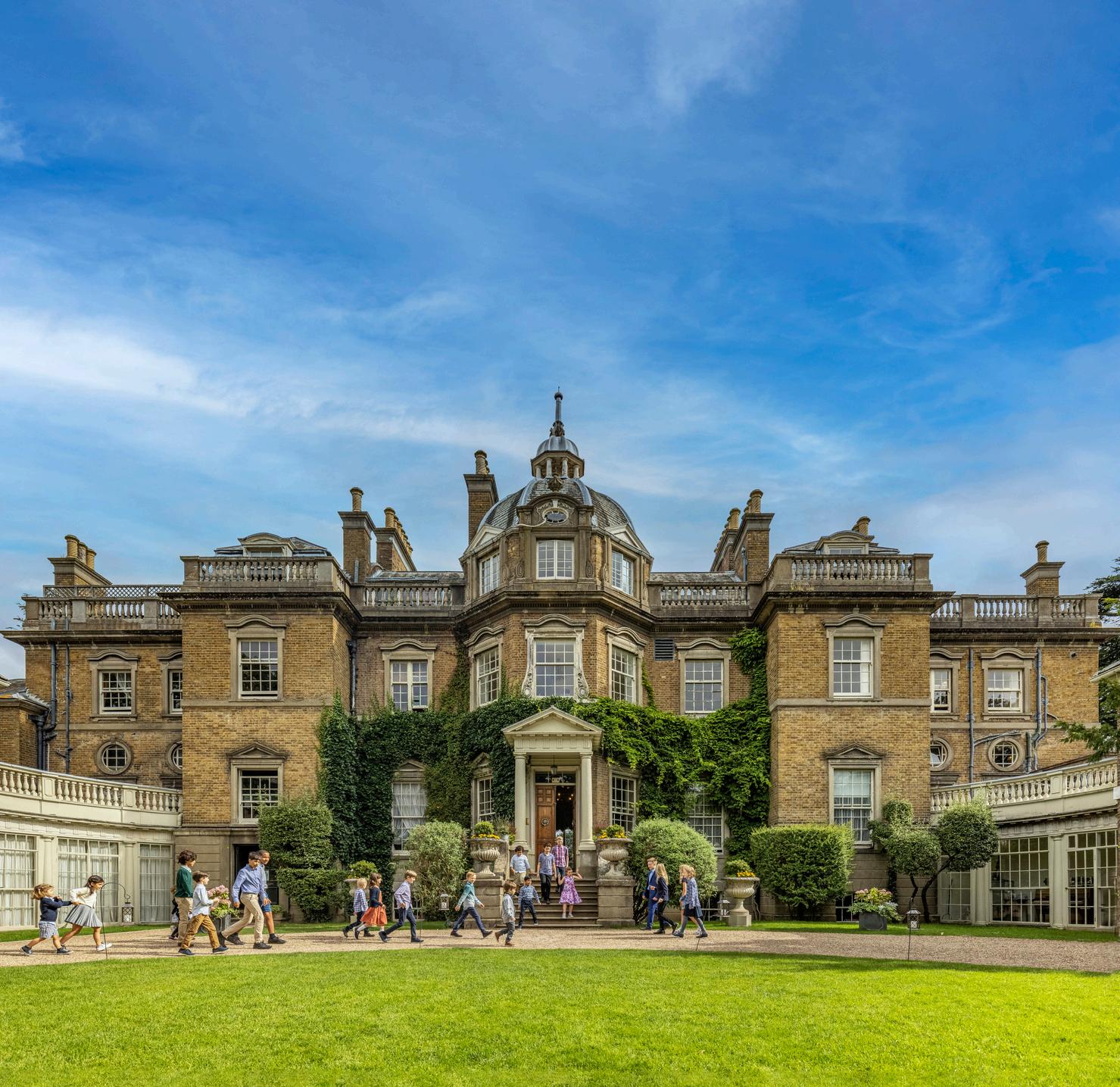
Year 5 Curriculum Overview
Autumn Term and Year Summary 2024


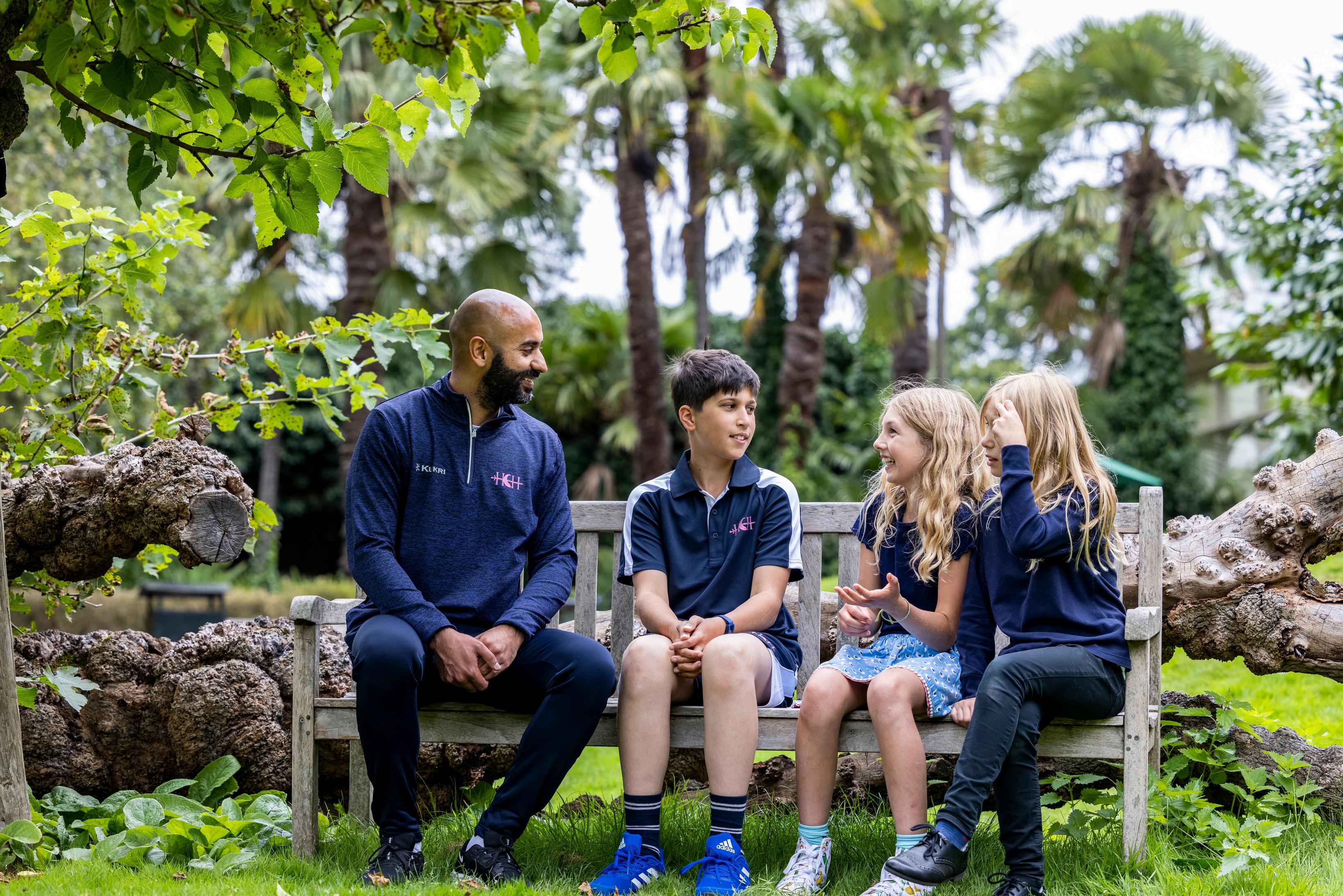




Year 5 Curriculum Overview
Autumn Term and Year Summary 2024




Hampton Court House Prep is about providing an educational experience centred around the child with bespoke approaches for every individual. Whether in classroom settings, extra-curricular activities or charity work, we teach the children to be well-rounded and caring and to contribute to all aspects of school life. Our day-to-day curriculum is one of the foundations of this approach. Lessons are designed to be interesting, engaging, supportive and challenging so that all children feel able to do their best. Teachers will always enable children to contribute fully to lessons, learn and demonstrate new knowledge, skills and ideas, and to shape their voice as part of a dynamic, but homely, community.
At Hampton Court House, our Years 1 – 6 curriculum is designed with the holistic development of each child in mind. We aim to cultivate a love for learning, curiosity, and confidence in our students. Central to our intent is the bilingual programme for Years 1 – 4, where approximately 50% of the curriculum is delivered in French. This unique approach not only enhances language skills but also broadens cultural understanding and cognitive flexibility. Our goal is to support every child’s intellectual, social, and emotional growth through a rich and balanced curriculum where mistakes are accepted, and questions welcomed.
Our curriculum is implemented with a focus on creating an inclusive, engaging, and supportive learning environment with a sense of fun. For Years 1 – 4, the bilingual programme integrates French into everyday learning, covering subjects such as humanities, science, sport and the arts in both English and French. This immersive approach helps students develop proficiency in both languages naturally and enjoyably, with in class support used to ensure all children are able to understand and access the curriculum. Lessons are structured to build on previous knowledge, ensuring a smooth progression. Within years 5 and 6 more specialist teachers are used to deliver the curriculum which allows for the development of skills necessary to start their secondary education in year 7. We employ a variety of teaching methods, including individual tasks, group work, and hands-on activities, to cater to different learning styles. Continuous assessment practices allow us to monitor each child's progress closely and provide personalised support as needed.
Impact
The impact of our carefully crafted curriculum is seen in the enthusiasm and active participation of our students. They develop strong foundation skills in literacy, numeracy, and science, along with the ability to think critically and solve problems. The bilingual programme enhances their language skills and cultural awareness, giving them a broader perspective and improved cognitive abilities. Our students also grow in confidence, independence, and social skills. Regular assessments demonstrate enhanced academic progress and personal development, ensuring that students are well-prepared for the next stage of their education with a lifelong love of learning and a unique bilingual advantage.
Key contacts
Susie Byers Head of Prep sby@hchnet.co.uk
Eldon Fayers Assistant Principal | Teaching & Learning efa@hchnet.co.uk
Nick Edwards Assistant Principal | Data & Assessment ned@hchnet.co.uk
Paul Pearce
Deputy Head | Operations & Academic pgp@hchnet.co.uk
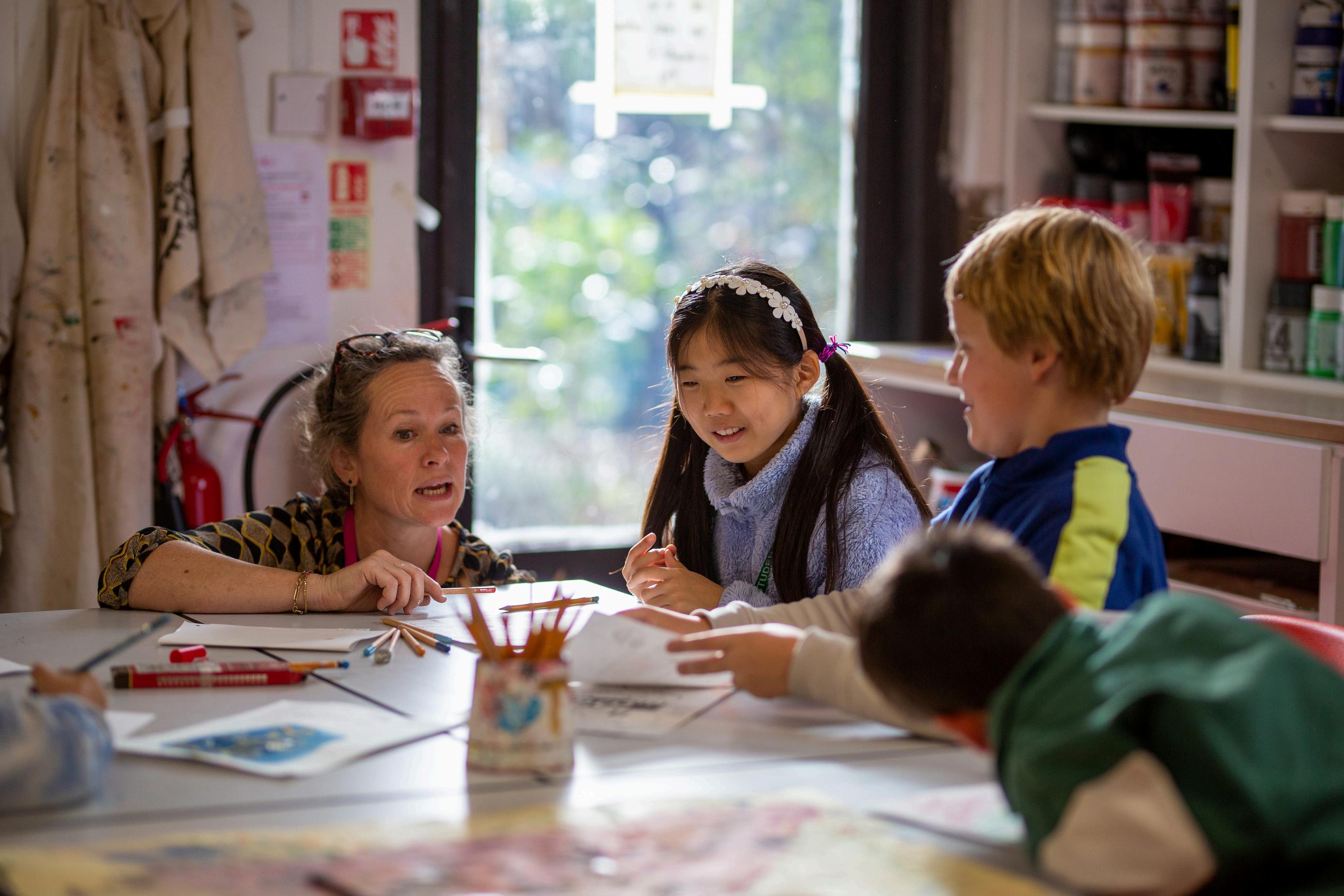

Year 5 Curriculum Overview Autumn Term 2024
Learning about the life and influences of Joseph Cornell, his collection of ephemera and his methods of assembling items to tell a personal story. Students will use modelling techniques and learn about composition when creating their own assemblage piece using items which they have collected over the summer holiday.
Students will then look at the work of Olivia Lomench Gill and Max Ernst to inform studies of fantastic and mythical beasts, using different techniques to create pattern and texture in their work. After making different studies, pupils will create their own mythical creature out of clay to be fired in the kiln.
Term
Autumn 1
Autumn 2
Spring 1
Spring 2
Summer 1
Summer 2
What are we studying?
Joseph Cornell: Learning about the life and influences of Joseph Cornell, how he collected ephemera to make art, learning about nostalgia, memories, creating a sense of place. Students will collect items over the summer break and create a work to tell a personal story.
Clay: Pupils will look at the work of Olivia Lomench Gill and Max Ernst. Learning how to prepare different backgrounds on which to draw and drawing in different mediums, pupils will create a series of fantastic beasts. Pupils will learn techniques in hand building to create their own creatures out of clay which will be fired in the kiln.
Japan: Pupils will study the traditions and art of Japan, learn the origins of origami and study the tradition of woodblock printing by looking at the prints of Hokusai.
Japan: Making Koinobori streamers for Children’s Day on 5th May. Pupils will learn about tessellating pattern, specifically fish scale patterns and practise painting on fabric to create their design. Pupils will learn to use a sewing machine to create their Koinobori streamer.
Recycled art: Learning about artists Vik Muniz and his recycled art, students will create a version of Vincent Van Gogh’s Sunflowers out of torn magazine pages. Pupils will learn about the work of Tim Noble and Sue Webster, and make their own shadow art.
Recycled art continued: Looking at the photography of Stephen Gladieu and studying his project about the plastic waste which ends up in the Democratic Republic of Congo. Students will use recyclable materials to create their own outfits which we will then photograph.

We begin Year 5 with a unit based around Chris Riddell’s book ‘Goth Girl’.
The children will explore how atmosphere, settings and characters are created. As part of the grammar teaching, pupils will be studying adverbs of possibility, use of commas, relative clauses and dialogue punctuation. We will then move onto looking at a range of non-fiction texts related to human and animal migration. This unit culminates with writing a cohesive text which includes parenthesis to help add extra information.
The final week of half term the children will be reading and investigating Lewis Carroll’s poem Walrus and the Carpenter and Hilaire Belloc’s Cautionary Tale. During the second half term Year 5 will be reading and enjoying Rudyard Kipling’s Classic Story The Jungle Book and his famous Just So Stories. The focus will be on dialogue punctuation, relative clauses and commas. Year 5 will then explore exciting travel destinations through a range of travel writing and will be writing their own travel recount. The final week of the Autumn will be a celebration of festivals around the world – including Christmas through classic and not so classic poetry.
How it will be assessed
Assessment will be through daily marking and feedback. Through discussion and questioning. At the end of each unit the children will be writing in the style of the author or poet they have been reading. There will also be informal assessment of writing, reading and SPaG at the end of each term.
Term
Autumn 1
Autumn 2
Chris Riddell Goth Girl -
What are we studying?
Through Chris Riddell’s Goth Girl, explore how atmosphere, settings & characters are created. Study adverbs of possibility, commas, relative clauses, dialogue punctuation.
Migration by Mike Unwin and Jenni Desmond
Three amazing texts stimulate children’s reading, writing and discussion of first animal, then human, migration. Writing cohesively and using parentheses form the SPaG element, but children’s own creative work will make this block truly exciting.
Lewis Carrol and Hilaire Belloc poetry.
Lewis Carroll's Walrus and the Carpenter and Hilaire Belloc's Cautionary Tales stimulate performance, debate, persuasive writing and poetry writing. Revise adverbs and modal verbs.
Rudyard Kipling The Jungle Book and Just So Stories
Explore the charm and challenge of classic fiction with Rudyard Kipling's Jungle Book and Just So Stories. Study dialogue punctuation, relative clauses and commas. Lonely Planet Kids – The travel Book by Malcom Croft
Steve Backshall’s Deady 60
Explore exciting destinations through a range of travel writing. Revise pronouns, learn about relative clauses & punctuation, including uses of commas. Write own travel recount.
Let’s Celebrate! Festival poems from around the world- edited by Debiani Chatterjee and Brian D’Arcy.
Get festive with Let’s Celebrate! (Debjani Chatterjee & Brian D’arcy). Explore, write and perform celebration poetry. Revise word classes and prepositions for time, place, cause.

Term
Spring 1
Spring 2
Summer 1
Summer 2
What are we studying?
An introduction to Shakespeare – Romeo and Juliet
Mr William Shakespeare's Plays, Seven Plays by Marcia Williams
Stories from Shakespeare by Geraldine McCaughrean
Choose from Romeo & Juliet for an in-depth study. Relative clauses & prefixes/suffixes in context of Shakespeare’s new words. Write and perform playscripts.
Reports and Journalism – Hurricane by David Wiesner / Tuesday by David Wiesner
Use Tuesday by David Wiesner to study reports. Write speech, playscripts, speech bubbles, direct and reported speech. Use modal verbs; learn about cohesion. Write newspaper reports.
Poems on a theme – Old Possum’s Book of Practical Cats
Study of short spooky stories – Short! By Kevin Crossley – Holland
Study genre of short stories using Short! by Crossley-Holland. Investigate adverbials and develop use of perfect form to indicate time/cause. Write predictions and short stories.
Argument and Debate – school uniform, detentions and mobile phones- The Steves by Morag Hood School uniform, detentions, mobile phones or screen time - there’s always an argument! This block lays the groundwork for effective argument and persuasion, written and spoken. Plus grammar: cohesion, paragraphs, commas.
Performance poetry – I like this poem – Kaye Webb
Inspirational short stories by Shaun Tan – Tales from Outer Suburbia by Shaun Tan Inspirational short stories from Shaun Tan, guaranteed to stimulate amazing work. Explore use of modal verbs, parenthesis and dialogue. Write a short story in Shaun Tan-style.
Persuasive letters, adverts, protest songs and speeches
Explore persuasive letters, adverts, protest songs and speeches. Study the impact of modal verbs and cohesion through adverbs and conjunctions. Deliver persuasive speeches.
Poetry - Aspirations and dreams – What do you want to be? By Wilf Merttens
Developing higher level language skills – Kensuke's Kingdom
Michael Morpurgo's Kensuke's Kingdom provides inspiration for developing higher level language skills and for cohesion within and between paragraphs, modal verbs/adverbs and commas.
Letter writing – Letters of Note : Correspondence Deserving of a Wider Audience – Compiled by Shaun Usher
Delve into letter-writing, revising conventions, purpose, and register, and analyse fascinating historical texts. Write fan letters, tactful RSVPs and job applications. Study modal verbs, commas, colons and bullet points.
Read and write powerful poems about the sea and the Titanic – Sounds of the Sea by James Berry, Song of the Seashore by Daphne Lister.

This year, the students will study topics such as introducing themselves, physical description, talking about food and ordering in a restaurant. We will talk about French celebrations and students will learn about the francophone world.
Year overview
Decibel 2
Term
Autumn 1
Autumn 2
Spring 1
Spring 2
What are we studying?
In unit 0 and 1, the students will introduce themselves and talk about going back to school after the holidays They will talk about their activities and describe themselves physically We will talk about countries and nationalities
In unit 2, we will talk about directions We will learn to make suggestions and invitations We will talk about future projects,
In unit 3, students will talk about their Christmas holidays and presents We will then learn to purchase in a shop, express possession and learn to understand a recipe
In unit 4, we will talk about our house and our bedroom We will introduce the past tense and tell past events
Summer 1 In Unit 5 we will go to the restaurant! We will talk about food and food habits, likes and dislikes Students will learn to order in a restaurant
Summer 2
In unit 6, we will talk discuss the weather, weather forecast and seasons We will also find out about future plans It will also be time to revise what we have studied so far!

The pupils will embark on an exciting language learning adventure as they delve into a collection of engaging activities. They will immerse themselves in captivating stories such as "Fifi Brindacier", “Harry Potter à l’école des sorciers” and "La Chèvre de M. Seguin", developing their comprehension skills and interpreting key information They will learn to construct sentences using invariant words and identify verbs and their tenses. Exploring the world of comics, including "L'encrier" and "Moi, le loup et les chocos", the pupils will sharpen their visual literacy and storytelling abilities.
Additionally, they will tackle scientific documents, enhancing their reading skills and understanding technical information Through the deciphering of pictograms, they will practise extracting meaning and expand their vocabulary With their newfound knowledge, the pupils will unleash their creativity by writing story continuations, embracing the infinitive form, and enhancing their expression They will deepen their understanding of language by exploring dictionary definitions and developing strong comprehension abilities
Students will be asked to write and present two book reviews per term
Term
Autumn
Spring
Summer
What are we studying?
Compréhension écrite : extraits de roman et BD, calendrier
Grammaire du verbe : passé-présent-futur, les groupes
Lexique : l’ordre alphabétique, expression du temps
Orthographe : la cédille, a/à, ou/où, les mots invariables
Analyse grammaticale : phrase verbale/nominale, phrase simple/complexe
Ecriture : invention (connecteurs de temps, cohérence et mise en page des paragraphes)
Compréhension écrite : la lettre
Analyse grammaticale (suite)
Grammaire du verbe (suite)
Ecriture : mettre en forme une lettre et compléter une enveloppe
Lexique : les mots particuliers et génériques
Orthographe : les homophones grammaticaux (son/sont, et/est/es), la lettre ‘ g ’ et les mots invariables
Récitation : L’Ile des rêves
Compréhension écrite : Interpréter un texte à l’aide d’indices implicites ou explicites –Les faits divers
Ecriture : inventer un fait divers
Lexique : les synonymes et les différents sens d’un même mot
Analyse grammaticale (suite)
Conjugaison : révisions du présent et des verbes irréguliers
Orthographe : mots irréguliers et mots de la même famille
Mémoriser et interpréter un poème de son choix parmi ceux étudiés

Year 5 Curriculum Overview Autumn Term 2024
These lessons are designed to teach children about the Principles of Harmony in Nature and the importance of keeping this harmony in balance.
The Principles of Harmony are Interdependence, Natural cycles, Diversity, Adaptation, Health, Geometry, and Oneness The subject is explored by pupils through inquiries of learning, reading, and discussing stories, explorative walks in nature, and creative activities These questions are linked with their syllabus content each half-term and learning is interdisciplinary with Art, Maths, English, and Science subject knowledge development
Themes by term will be:
Autumn | Habits and Habitats
Spring | Evolution
Summer | Sharing the Planet
Term
Autumn 1
What are we studying?
Autumn 2
Adaptation
Inquiry Question: How does nature find creative ways to adapt?
Students will learn that protecting local habitats is crucial for maintaining biodiversity and ensuring the health of ecosystems By understanding the adaptive strategies of nature and actively participating in local conservation efforts, students will gain a deep appreciation for the resilience of life and the importance of protecting our natural world
Health
How do our eating choices affect our environment?
Students will learn that by making mindful eating choices, reducing food waste through creative habits and inventions, and understanding the life cycle of food and embodied energy that goes into its production, packaging and transportation, we can significantly reduce our environmental impact and contribute to a more sustainable future

Term
Cycles
Spring 1
Spring 2
Summer 1
Summer 2
What are we studying?
Inquiry Question: How do living things change as they grow?
Pupils will learn about life cycles and develop knowledge about the changes living things (animals including humans and plants) go through as they develop with age They will learn about how living things evolved and identify changes in matter and materials Learning about life cycles, the processes of growth and development, and the principles of evolution, students will gain a comprehensive understanding of how living things change over time These lessons will help them appreciate the complexity and diversity of life on Earth
Interdependence
Inquiry Question: What makes ‘me’ become ‘we’?
Pupils will learn about the importance of mental well-being and how humans are naturally social creatures They will learn about the importance of communities and that these are not exclusive to humans Communities are a population of species that interact with each other, and they are natural, biologically diverse ecosystems Keeping these healthy and in balance are important factors to our mental well-being
Oneness
Inquiry Question: Why is biodiversity important in the environment?
Students will explore and develop an understanding of how biodiversity is important in the environment because it contributes to ecosystem stability and resilience, provides essential ecosystem services, offers genetic resources for innovation and adaptation, has cultural and recreational value, supports economic activities, and enhances resilience to climate change Protecting and conserving biodiversity is essential for maintaining healthy ecosystems and ensuring the well-being of present and future generations of all living things
Diversity
Inquiry Question: How do we live different lives on a common ground?
Students will study the diverse ways in which living things coexist and interact within shared environments on the Planet and explore ways in which we can navigate living different lives on common ground
They will learn about how soil serves as a vital carbon storehouse, playing a crucial role in carbon sequestration, soil health, biodiversity, and ecosystem function Protecting soil is essential for mitigating climate change, promoting food security, and preserving natural ecosystems


Year 5 will begin an introduction to Latin with Minimus Book 1 The autumn term will be looking to familiarise them with the links between Latin and English grammar and vocabulary by exploring life with the family of Vindolandan General Flavius and his family through the eyes of their ever-present household guest and resident mouse, Minimus.
Autumn 1
Spring 1
Life in Vindolanda
Minimus Chapter 1: Meet the family Members of the family and pets
Write your family profile in Latin
Roman Houses and using adjectives
Roman food and dining: create a Roman menu
Romans and Britons: Chapter 5
What was life like before Roman rule?
Meet the Romans: creative writing activity
Adverbs
Roman report – what Romans thought of Britons
Roman and Greek theatre
Making theatrical masks
Summer 1
Perform a scene in translation from Plautus’ The Ghost wearing Roman tragic and comic masks
Autumn 2
Spring 2
Work, work, work: chapter 3
Jobs and roles in society in Roman times
Introduction to present tense verbs
Myth of Pandora
The best days of your life Chapter 4
Roman childhood and schooling
How is it similar and different
Roman writing activity
Saturnalia cards
Off to town: Roman trade and commerce
Life in Eboracum – the forum and trade roots
Septimius Severus in York
Candidus goes to Verulamium – life for merchants in Britannia
Myths and monster’s posters: Create your own myth, hero, monster and quest
Summer 2
The Military machine: Chapter 7
Imperative verbs forms Magistra dixit game with imperatives
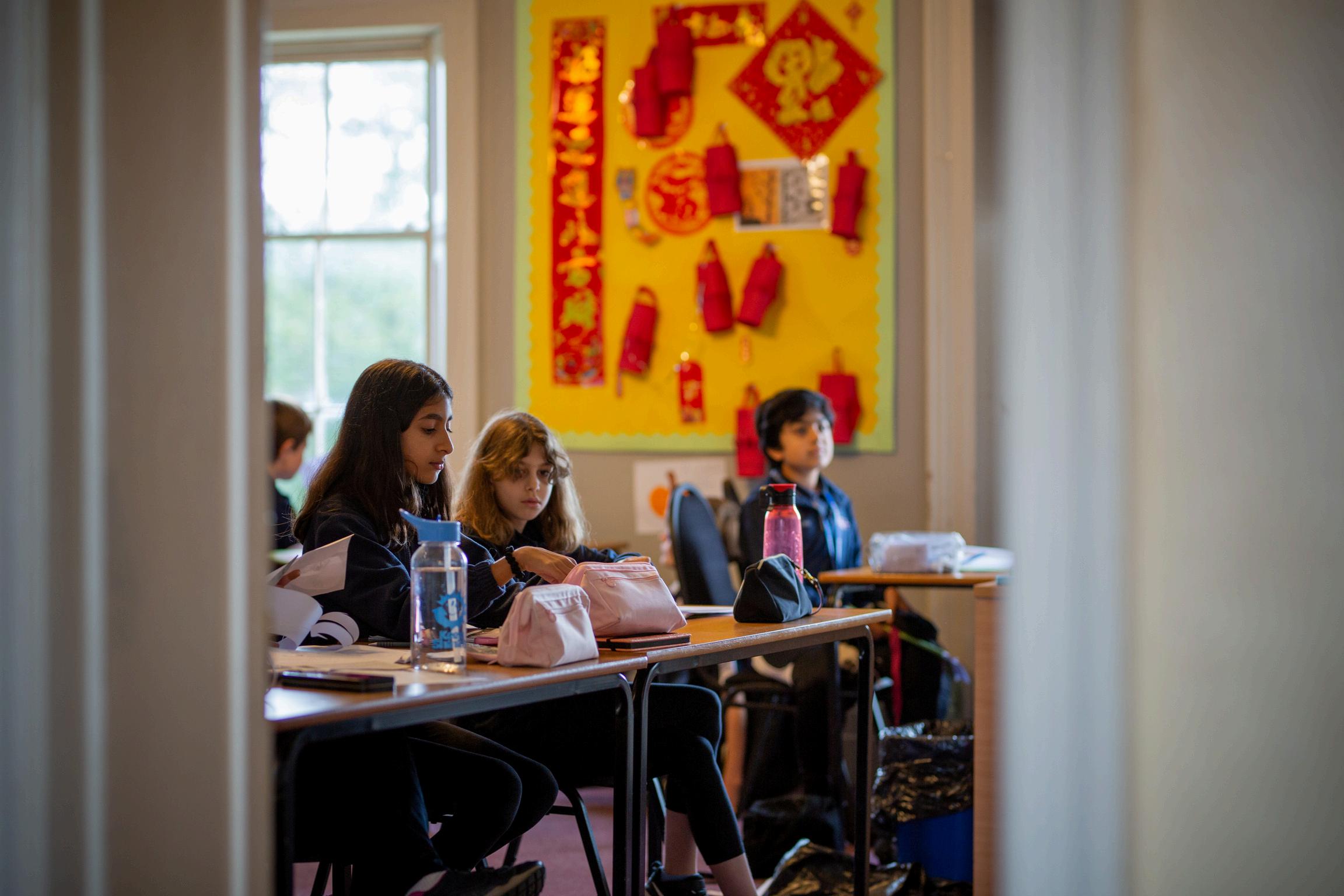

During Autumn term, Year 5 will learn the Chinese Mandarin basic pronunciation rules and strokes for making Chinese characters. Students will start learning Chinese with numbers, and then greetings, introduce themselves, and discovering China. Students will have the opportunity to enjoy learning the legend story of the Chinese mid-autumn festival, making beautiful lanterns. Year 5 students will learn some popular Chinese children’s songs
Autumn 1
Spring 1
JB1 Ch1 Hi Investigating Chinese characters and Pinyin pronunciation Counting up to 99 and learning simple characters
Talking about your age
JB1 Ch2 Family and home
Talking about family using measure words
Talking about your pets
Learning to say dates and months
JB1 Ch3 Hobbies
Summer 1
Talking about what you do in your free time
Talking about what you like doing Talking about sport
Autumn 2
Spring 2
Learning some basic greetings Introducing yourself to others Discovering China
Summer 2
Finding out about Chinese homes and families
Learning more about Chinese characters
Preparing celebration of the Chinese New Year/Spring festival
Learning the days of the week
Learning about young people’s hobbies in China
Learning more about Chinese characters


In the first half term, pupils will learn about:
Investigating number patterns
Reading and writing roman numerals
Writing and ordering numbers less than 10 million
Rounding to the nearest 10, 100, and 1000
Formal methods of addition and subtraction and applying those methods to word problems
Formal methods of multiplication and division
In the second half term, pupils will learn about:
Factors, multiples, and prime numbers
Measuring, drawing, and calculating angles
Simplifying and ordering fractions
Adding, subtracting, multiplying, and dividing fractions
Half-termly written assessments covering the subjects that have been studied in that half-term In addition, informal oral assessment takes place in lessons throughout the term to consolidate and assess depth of understanding
Autumn 1
Spring 1
Summer 1
What are we studying?
Roman numerals
Place value
Methods for adding, subtracting, multiplying, and dividing
2-D shapes
Negative numbers and coordinates
Translation and reflection
Fractions of quantities
Percentages 3-D shapes
Autumn 2
Spring 2
Summer 2
What are we studying?
Factors, multiples, and primes
Angles
Fractions
Decimals, fractions, and percentages
Money and measure
Long division methods
Tables and graphs
Time and timetables
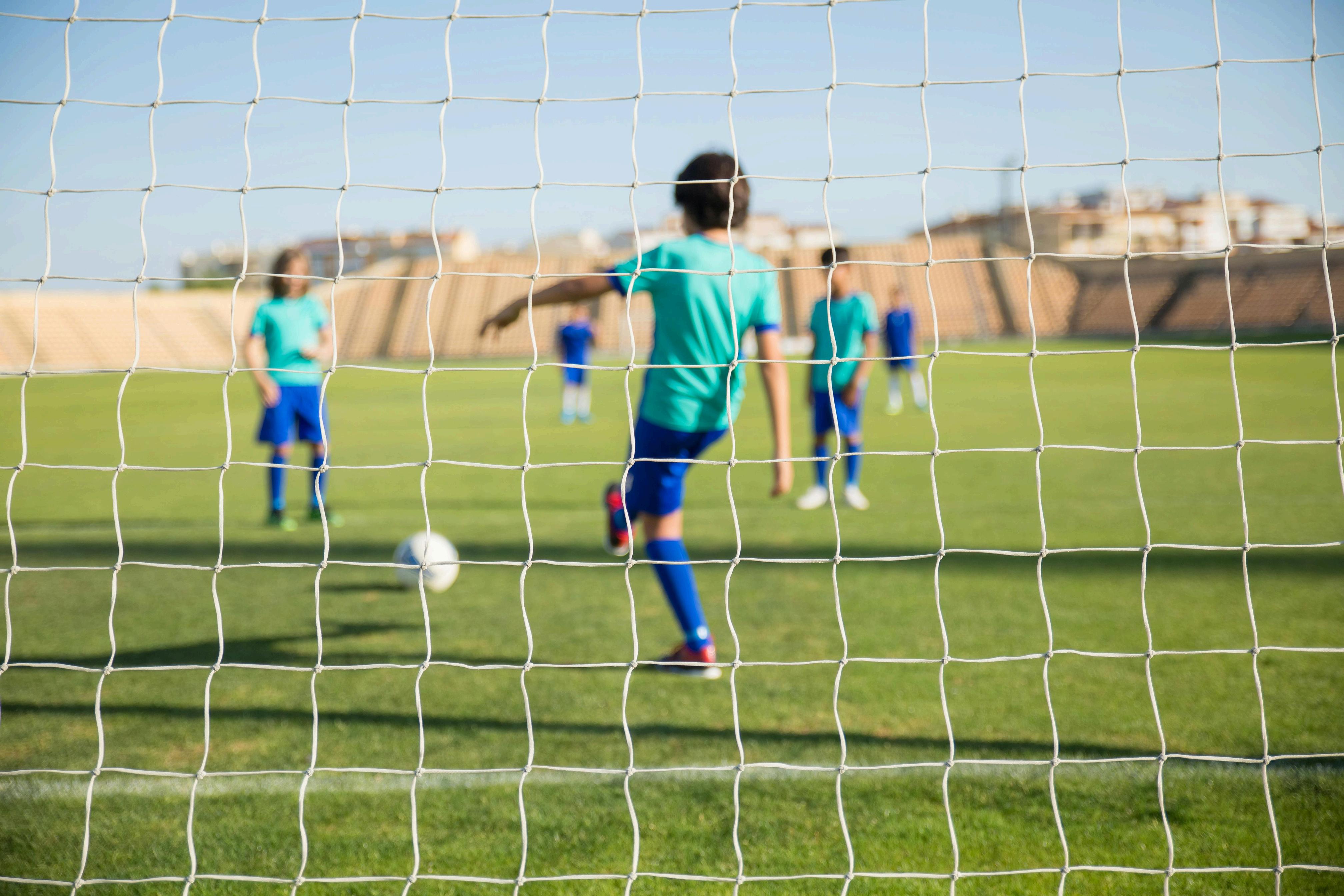

Organised physical activity is vital to child development, both in terms of strength and growth cognitive, motivational and social skills.
The Year 5 children will focus on the core skills of two invasion games, football and netball In football, the children will develop their understanding of the core skills to play the game This will include the different ways they can pass the ball, the various ways to shoot the ball into the goal and how to dribble the ball effectively around the pitch They will work on their agility in games too Through individual practice, partner work and group tasks the children will enhance their understanding of the sport through small sided conditioned games
In netball, they will learn to expand their knowledge of catching, throwing and movement Students will be taught the basic positions, how to shoot and the different types of passes they can use in competitive game situations
Term
Autumn
Spring
Summer
What are we studying?
Football: Passing, shooting, dribbling, conditioned games
Netball: Passing, shooting, attack vs defence, positions & conditioned games
Games: balance, coordination, agility, stuck in the mud, octopus tag, capture the flag
Gymnastics: balances, body shapes, travel, jumps and rolls
Hockey: Passing, shooting, dribbling, conditioned games
Benchball: throwing, catching, positions and attack vs defence
Cricket: throwing, catching, batting, bowling and fielding
Athletics: relay race, 100m sprint, 200m sprint, hurdles, long jump, javelin throw and shot-put throw
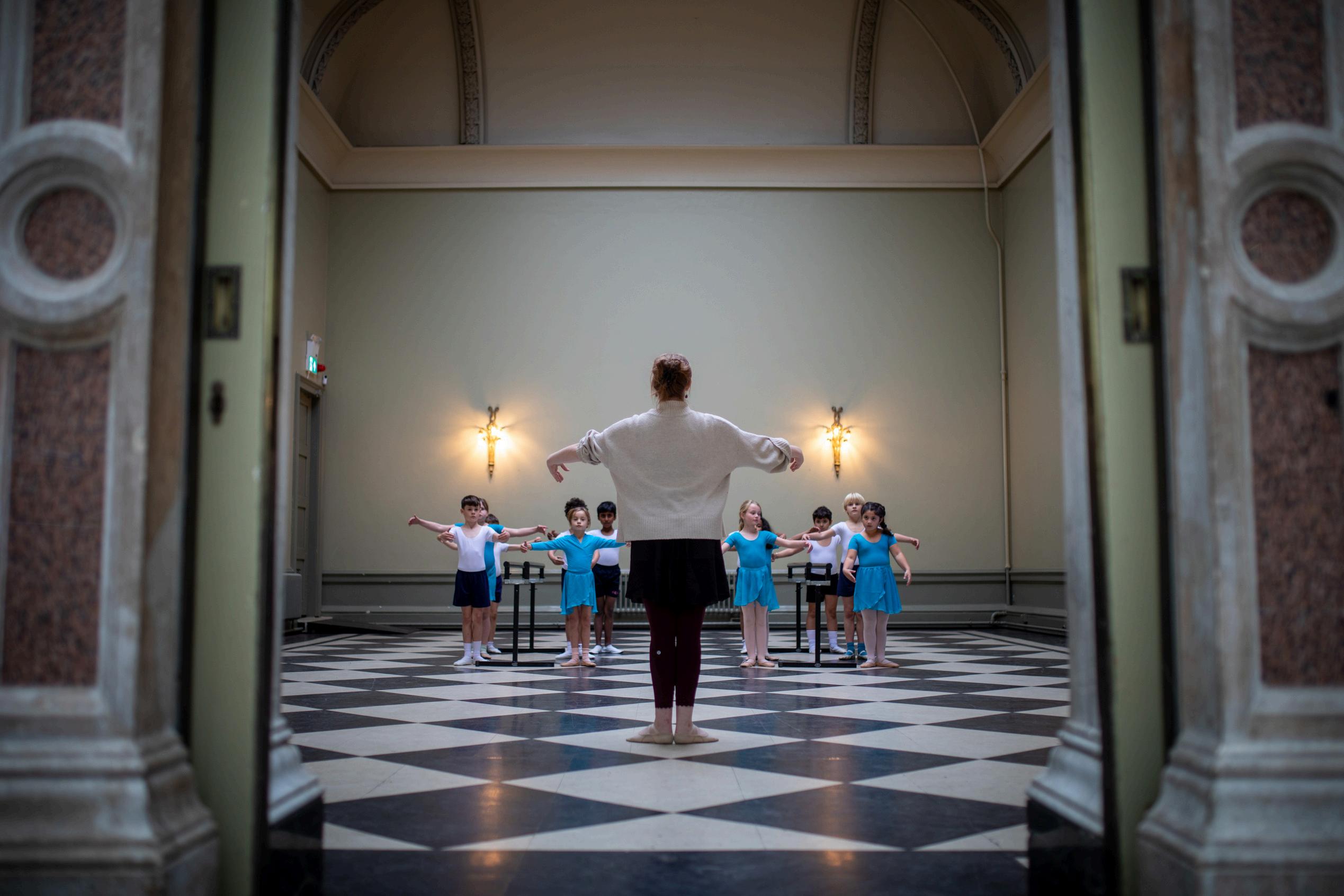

At Hampton Court House, we believe that the performing arts are integral to our school community. Therefore, our curriculum is built on students actively participating in various performances throughout the year. We are committed to offering inclusive opportunities that allow every student to showcase their talents.
In our lessons, to prepare for these performances students will focus on developing spatial awareness, musicality, vocal, physical, and character skills to enhance their performance abilities They will learn stage craft and understand how to engage an audience
Additionally, we place a strong emphasis on collaborative and creative skills, which are essential for every child's growth Our classes incorporate engaging games and activities designed to foster teamwork, improve peer interaction, and develop the ability to follow directions Students are encouraged to contribute creative suggestions through music, movement, and dialogue, ensuring a well-rounded arts education at Hampton Court House
We begin the year by preparing for our Christmas show, themed around "The Nutcracker " This year we are introducing Dance for the first time to year 5, and we believe this show will provide them with a great opportunity to develop their skills
In Year 5 students have the exciting opportunity of working on a Musical They will use their Dance, Drama and Music lessons to prepare for this learning about stage presence, blocking, choreography and ensemble work This is a wonderful experience for our year 5 & 6 students who work together on the show By the end of the production, students not only showcase their talents but also forge new friendships and strengthen their sense of belonging within our school community, united in achieving a common goal
Throughout the year, there will also be numerous recitals and concerts, providing students with platforms to display their musical abilities and talents
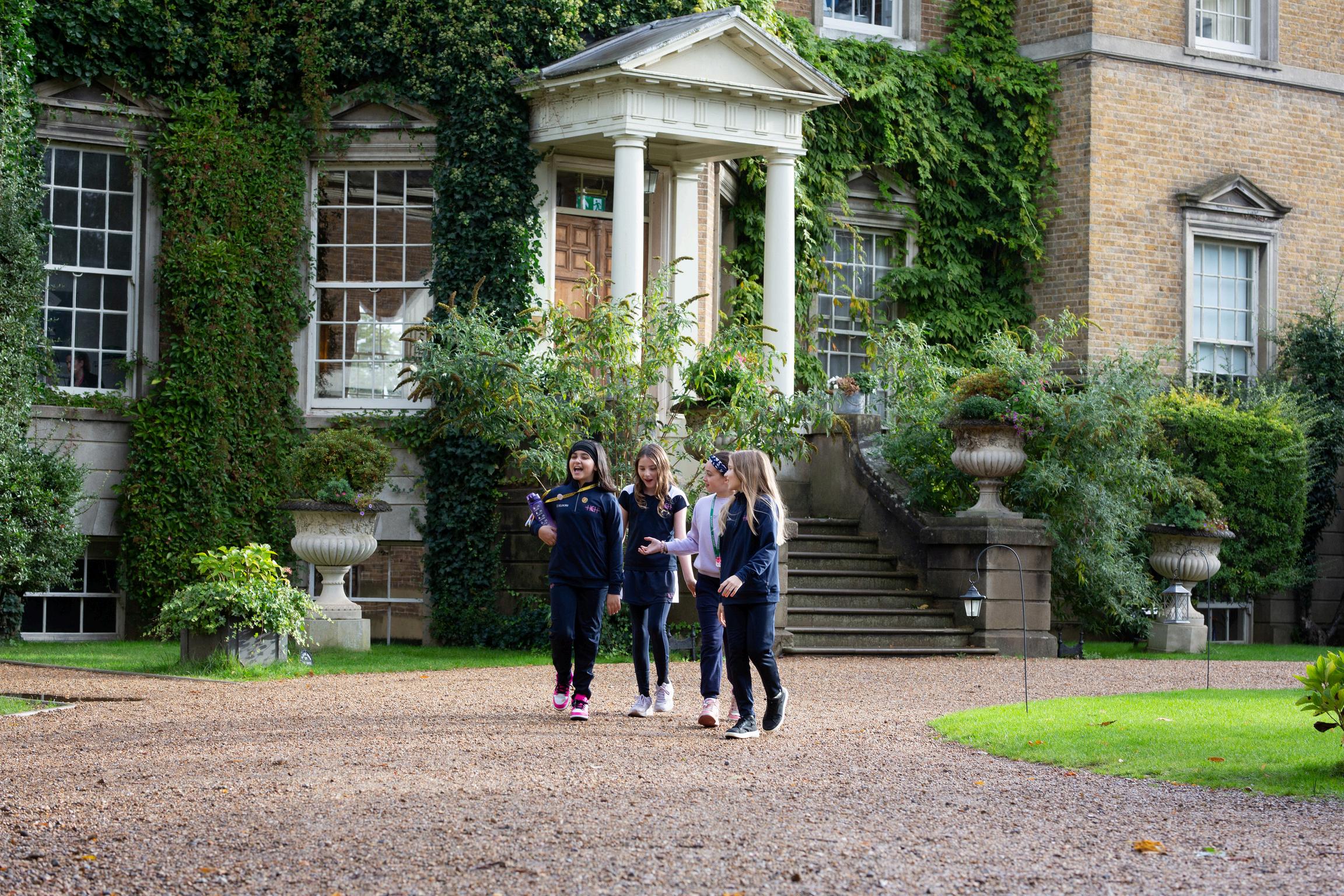

We begin PSHE across the Prep school by exploring the topic ‘Being Me in My World’.
We will begin by looking at the year ahead, considering any goals or fears the children may have. We will think about it means to be a global citizen, and from that, a positive member of the year group. In the second half term we will explore the topic ‘Celebrating Difference’. This centres around asking the question – am I normal? And understanding differences are what make us special. We also look at the importance of anti-bullying.
We aim to make all PSHE sessions as relevant to the students and their current needs and concerns, therefore out content is changeable, and suggestions and feedback are welcome at any time from students and parents.
How it will be assessed
PSHE lessons are predominantly discussion based, with some written tasks for deeper comprehension and application. At the end of each lesson, the students will complete self-reflection sheets for teachers to monitor understanding and adapt future teaching. Teachers keep track of the students’ levels and understanding of the different elements of PSHE across the year.
What are we studying?
Being Me in my World Identifying goals for the year
Autumn 1
Global citizenship
Responsibilities
Rewards and consequences
Relationships
Recognising me
Spring 1
Summer 1
Safety with online communities Online gaming
Staying safe and happy online
Healthy Me Smoking Alcohol Emergency aid Body image
My relationship with food
Autumn 2
Spring 2
What are we studying?
Celebrating Difference Different cultures
Racism
Rumours and name calling Types of bullying
Changing Me
Self-image and body image
Puberty for girls
Puberty for boys
Conception
Dreams and Goals
My dream lifestyle
Jobs and careers
Summer 2
My dream job
Dreams and goals of people in other cultures
Supporting each other

Year 5 Curriculum Overview Autumn Term 2024
The Year 5 Science Curriculum will cover Laboratory Safety, Properties of Materials, Changes of Materials, Earth and Space, Forces, Living Things and their Habitats and Animals including Humans.
In this capacity the pupils will be taught the following skills:
To plan different types of experiments
Identify equipment required for experiment
Take measurements, using scientific equipment; e g measuring cylinder and scales
Record data and results in tables and bar and line graphs, using a ruler and a pencil
Make predictions, using test results
Present findings, through graphs, tables evaluations and conclusions
Pupils will be assessed on ½ termly tests to determine understanding and misconceptions. Then in the Summer Term the pupils will be assessed on the years ’ work to evaluate knowledge and understanding
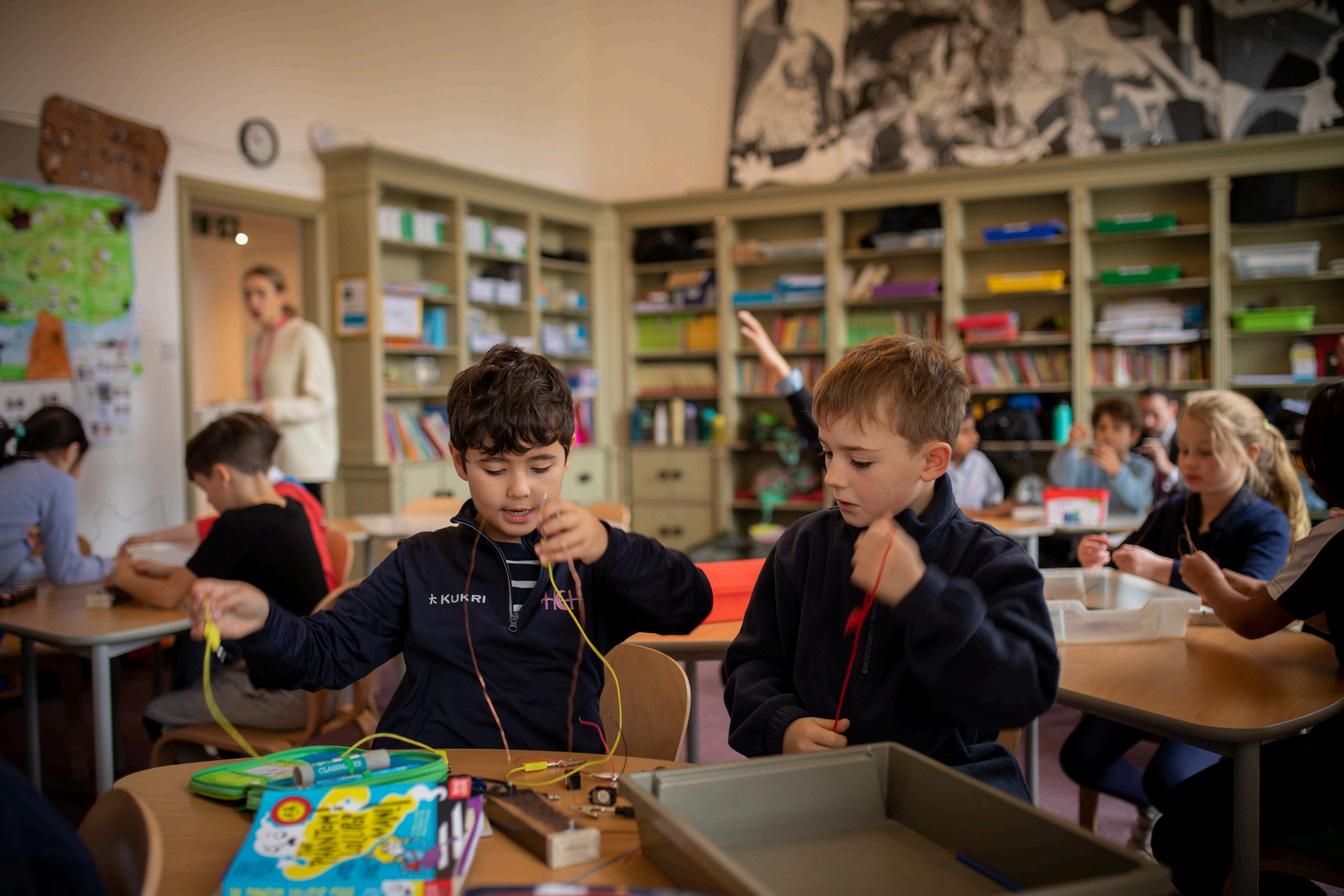

Term
Autumn 1
Autumn 2
Spring 1
Spring 2
Summer 1
Summer 2
What are we studying?
Laboratory Safety/Properties of Materials
Equipment used in a science laboratory
Hazards and rules in a lab.
Compare and group together everyday materials based on their properties, including their hardness, transparency, and conductivity (electrical and thermal)
Give reasons, based on evidence from comparative and fair tests, for uses of everyday materials, including metals, wood and plastic.
Changes of Materials:
Compare and group together everyday materials based on their properties, including their solubility and response to magnets.
Know that some materials will dissolve in liquid to form a solution and describe how to recover a substance from a solution.
Use knowledge of solids, liquids and gases to decide how mixtures might be separated, including through filtering, sieving and evaporating.
Demonstrate that dissolving, mixing and changes of state are reversible changes.
Earth and Space
Describe the movement of the Earth, and other planets, relative to the Sun in the solar system.
Explain the movement of the Moon relative to the Earth
Describe the Sun, Earth and Moon as approximately spherical bodies
Use the idea of the Earth’s rotation to explain day and night and the apparent movement of the sun across the sky.
Forces
Explain that unsupported objects fall towards the Earth because of the force of gravity acting between the Earth and the falling object.
Identify the effects of air resistance, that acts between moving surfaces. Investigate the effect ground friction has on movement.
Investigate and identify the effect of boat shape on water resistance.
Living Things and Their Habitats
Describe and label the male and female reproductive parts of flower
Record a diary of a bean
Describe the differences in the life cycles of a mammal, an amphibian, an insect and a bird
Explain the life process of reproduction in some animals.
Animals including Humans
Pupils will learn about the gestation periods of a variety of animals, including humans. They will be able to describe the key stages and processes of human foetal development. Through research they will be able to explore the key physical and emotional changes that take place during puberty in both boys and girls) and discuss the physical and mental changes to the human body as it ages.
They will explain with diagrams, the timeline of key events that occur in human life.
